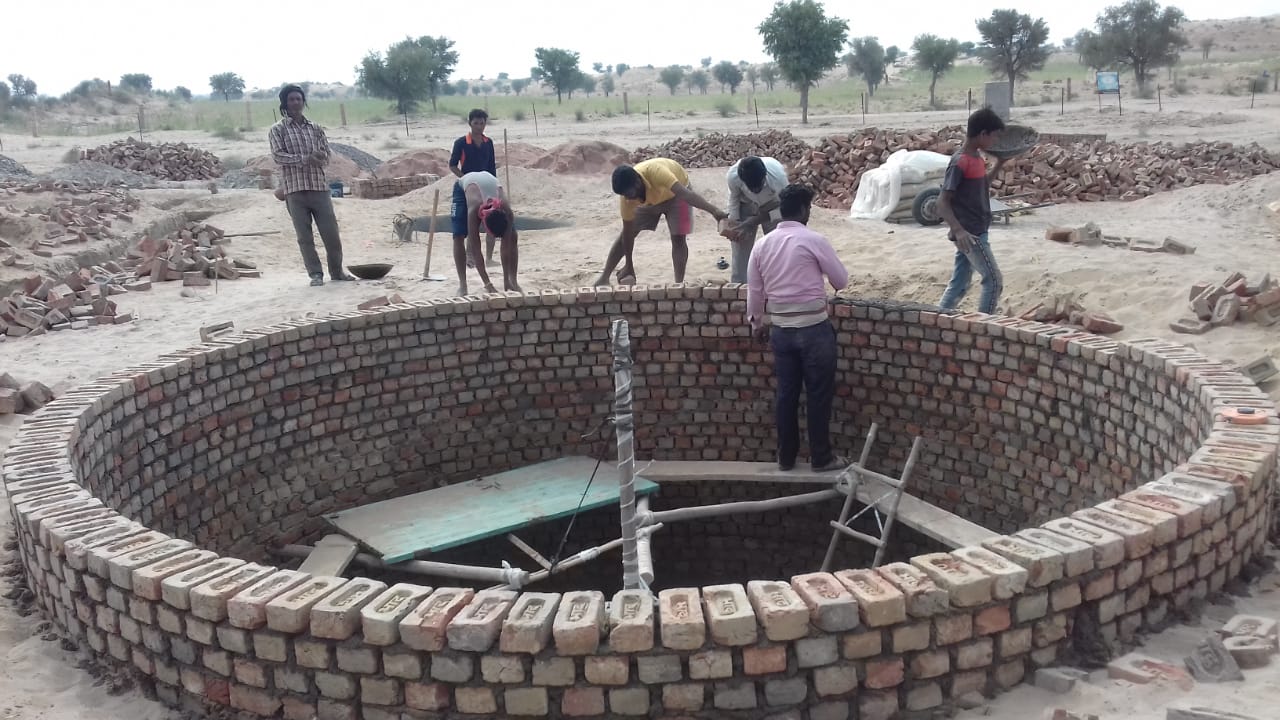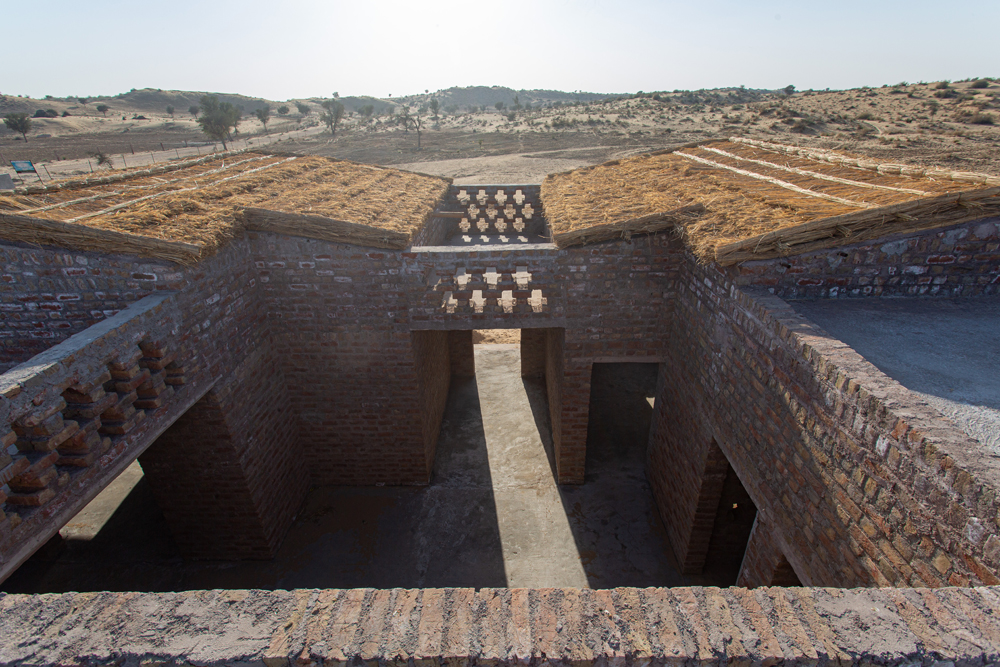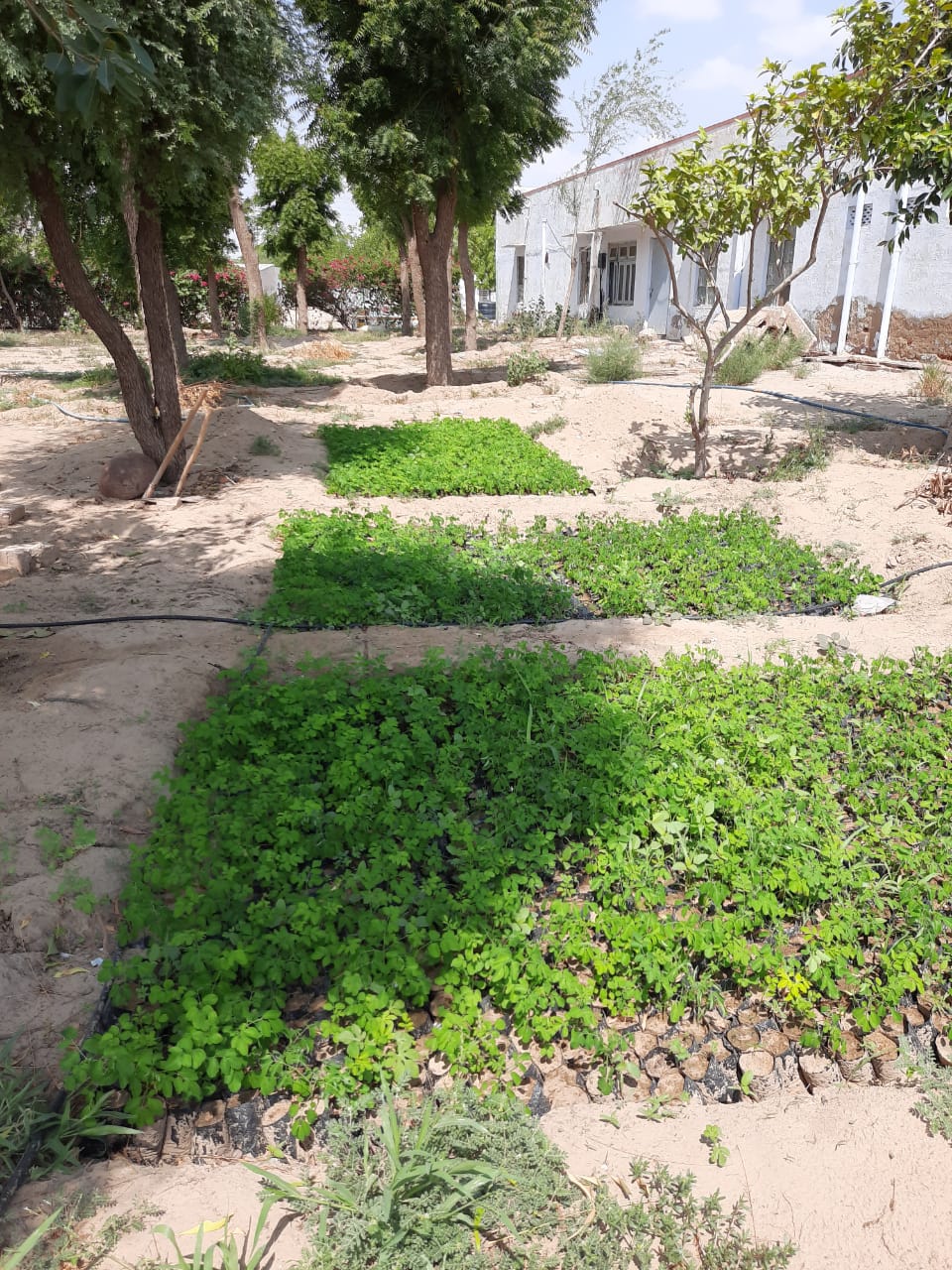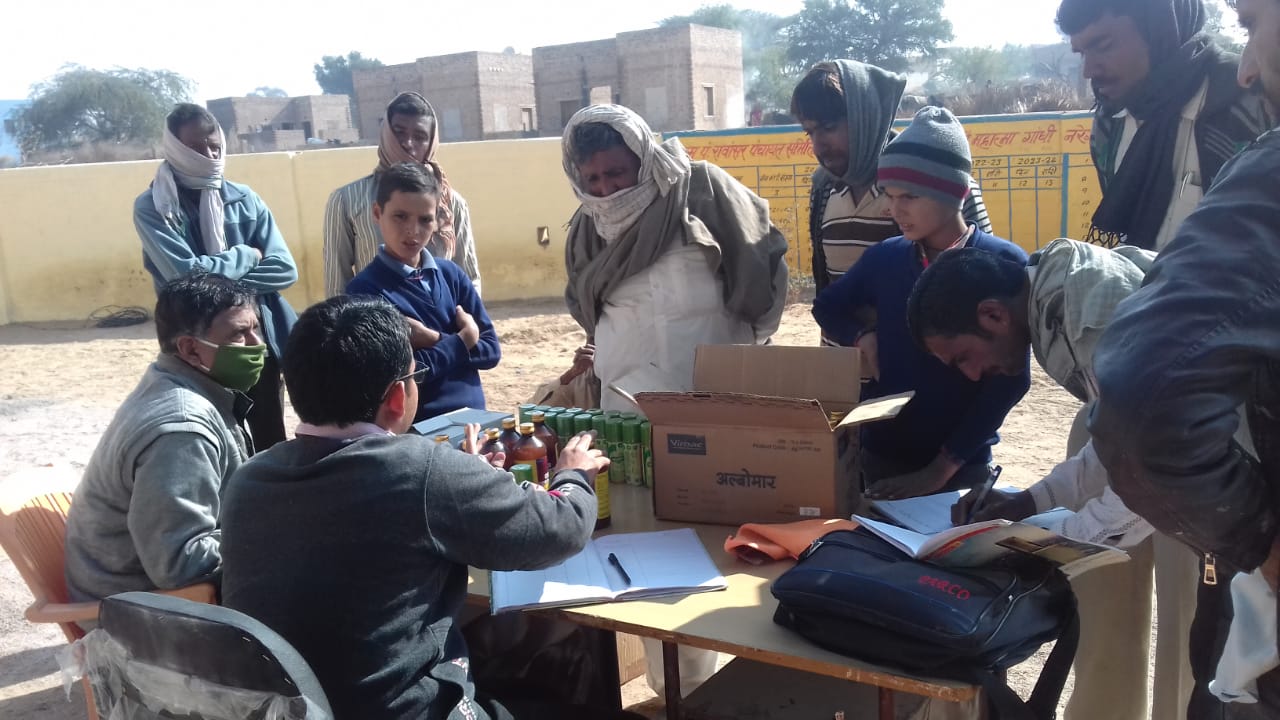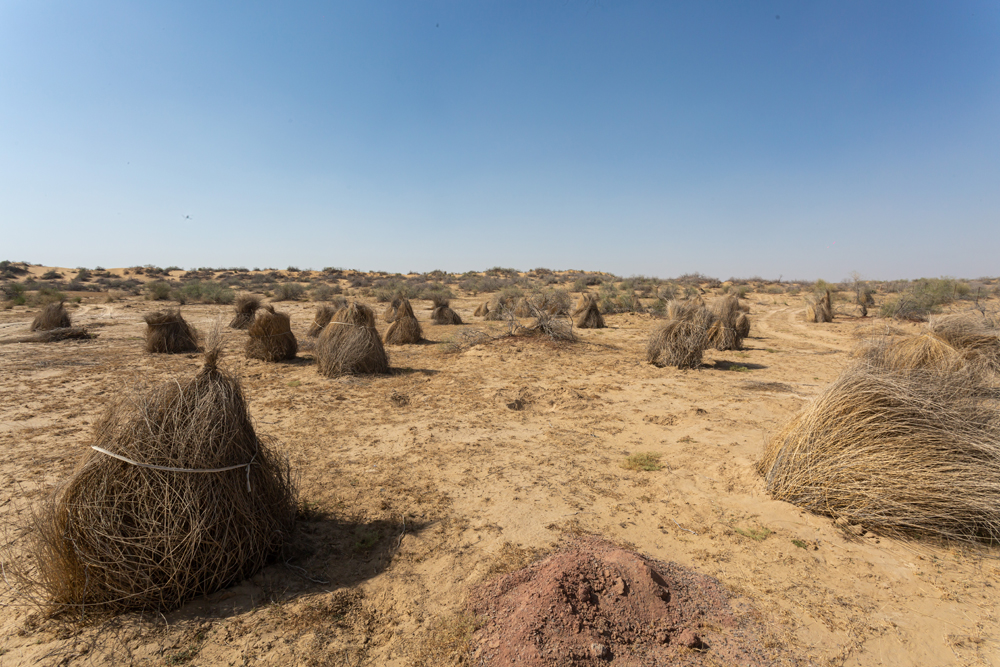Pastoralism
We are involved in providing technical and strategic support to the pilot implementation of two programmes on transhumant pastoralism – the long-range migration of shepherds and the short-range migration of camel-herders.
Reviving The Ecosystem For Transhumant Pastoralism
All over the world, pastoralists are struggling to secure their rights, spaces and fraying traditions and identities. In India, amidst this common struggle, we are experimenting ways to accommodate and prioritise pastoralism alongside urbanisation, modern livelihoods and alternative uses of pastoral lands and resources. “Reviving Traditional Pasture Routes in Dry and Arid Parts of the Country” of Urmul Trust supported by United Nations Food and Agriculture Organisation and National Rainfed Area Authority, Government of India, whereby DRC is a technical agency, is one such initiative to develop the pastoral ecosystem. Pastoralism is a way of life held together by an intricate network of stakeholders that is quickly decaying. To rebuild a conducive environment for pastoralists, we have provided technical, knowledge and convergence support across multiple segments – infrastructure, capacity building and policy advocacy. We assisted in the conceptualisation and addressed the hard and soft technical needs of the intervention model. Most of the support services were provided through partnerships –
Deserts of the world are characterised by the lack of fertile resources for agricultural productivity. Communities in these seemingly resource-scarce spaces majorly rely on pastoralism as a way of life – for navigating uncertainties and sustaining their livelihoods. Desert cultures, occupations and identities are deeply linked to pastoralism as a way of life. However, these desert-centric elements of pastoralism are rapidly chipping away with the passing times. Pastoralism has thus inevitably been a major focal point and theme of interest for Desert Resource Centre. We are dedicatedly engaged in understanding, documenting and envisioning pastoralism dynamics in the deserts.
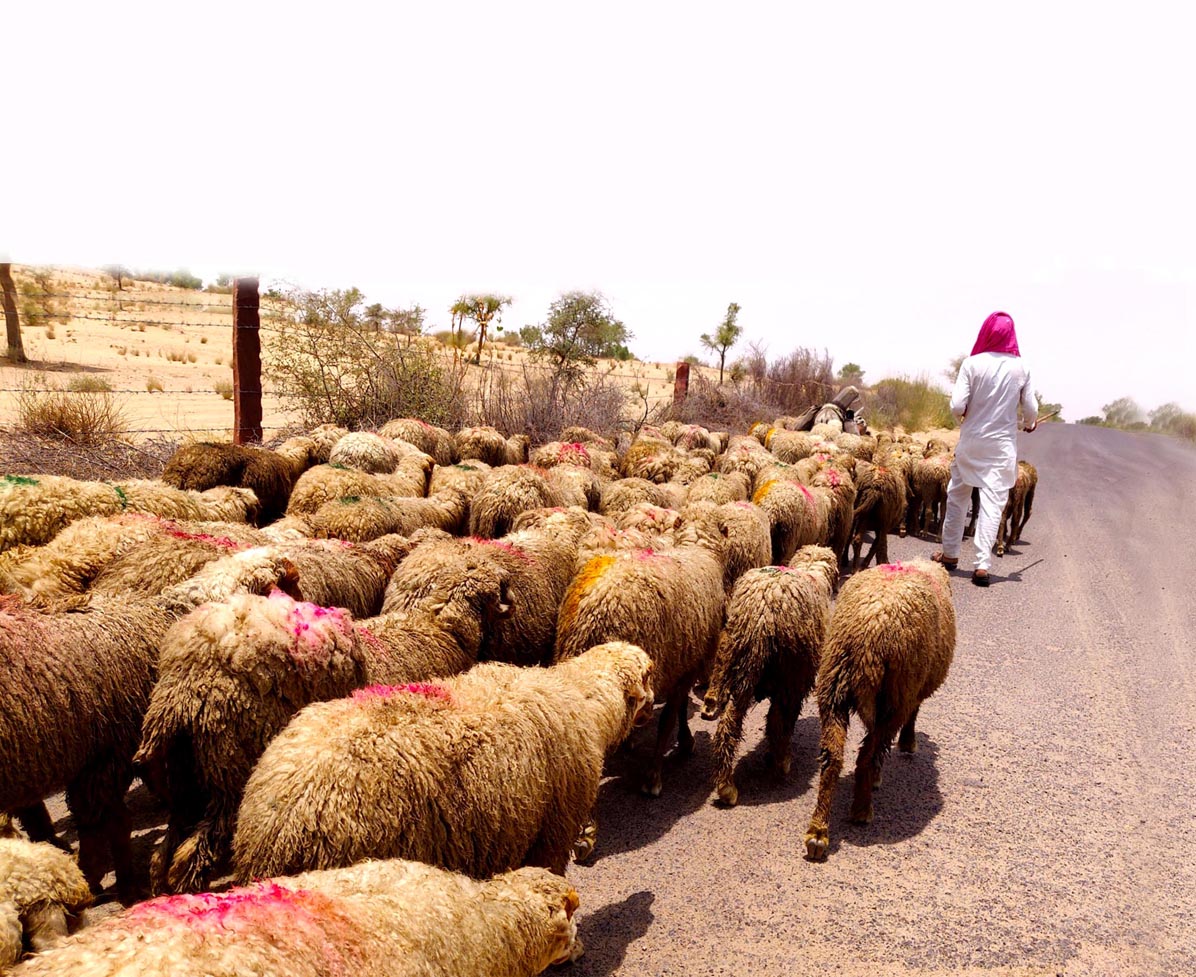
- DRC has been engaged in ideating the construction and operationalisation of infrastructural units that serve as Common Facility Centres along traditional pasture routes. We developed infrastructure and architecture plans, ensuring the use of locally-sourced, sustainable building material for construction. These units, placed at specific intervals along the pastoral corridors, provide basic input support services to long-range herding communities, ensuring availability of crucial resources for migrating herds, allowing the consolidation of trading and value-chain activities and in the process, contributing to the overall sustenance of economic opportunities.
- We documented the progress and impact for outreach through photos, reports and preparation of novel route maps and policy papers. These knowledge products were further used to promote programme communications on social media platforms and initiating dialogues and webinars with varied stakeholders nationally and globally.
- There is currently no concrete mechanism to track and help pastoralists on the move in India. Pastoralists face hurdles on the route that could easily be addressed by bridging knowledge gaps about state schemes, veterinary care, feed and fodder, emergency assistance, etc. We have developed the first-of-its-kind “passport for pastoralists”. This multi-purpose document contains details of all the emergency services along the routes (phone numbers and locations of police stations, hospitals, CFCs). The passport serves as an identity-card-of-sorts and allows pastoralists to gain access to grazing spaces, solidifying both their identity and rights. The pastoralist passport allows Panchayats and government machinery to finally capture in-transit details of both the herders and their herds. The passport allows pastoralists to directly contribute to policy processes by documenting the changes in their herd sizes during migration in the diary section of the passport and submitting it at the CFCs on their return- animals born, sold or lost due to natural and unnatural causes. We envision to gradually develop the components of this passport into an application that would allow pastoralists to get real-time updates about weather conditions, emergency services, fellow herding groups, location and status of water and fodder resources in the route ahead.
- We assisted in policy framing and advocacy by designing an Integrated Pasture Development Programme model with NRAA for scaling up the programme across the hot and cold deserts of India. Collating existing best-practices and beneficiary voices into innovative knowledge products and channelising them into advocating for pastoralists’ constraints at the policy levels are of utmost priority to us.
- We forged convergence with other partners for programme support such as Azim Premji Philanthropic Foundation (vaccination support to animals during lockdown), Selco Foundation (for solar powered shearing machines) and government agencies like Department of Animal Husbandry and Dairying, Rajasthan (animal health camps) and the Rajasthan Forest Department (saplings for developing fodder resources at subsidised rates).
- As thought leaders in the space of pastoralism, we ensure upcoming interventions like revival of pasture routes find a space in national and international webinars, dialogues and movements. We are an active member of the South-Asia regional group, assisting in garnering stakeholder support for the declaration of the International Year of Rangelands and Pastoralism.
- We also conducted technical training of the field implementation teams on collecting data via digital applications.
Forging India’s Largest Camel Herder Alliance- The Camel Partnership
We have facilitated the creation of The Camel Partnership, an alliance of network partners directly or indirectly working on improving the status of camels and associated value chains in India. The Camel Partnership is, in essence, a full-fledged industry-creation exercise that envisions to integrate the traditional, dying camel value chains with the modern economy and start newer value chains that not just help camel-based livelihoods but also improve the status of rapidly shrinking camel populations and camel habitats in the hot and cold deserts of India and beyond. In Rajasthan, Desert Resource Centre drives the revival of the camel ecosystem in the Thar Desert. In its initial phases, The Camel Partnership is advancing camel milk value chains in three camel milk clusters with funding support from Axis Bank Foundation-Sahjeevan and HDFC Bank Parivartan-Marugandha. As a technical agency, we have assigned knowledge resource persons for the development of policy briefs, case stories, booklets and strategy documents and creative articles on camels. We also assisted in reaching out to relevant ecosystem partners for scaling up support for access to affordable and timely veterinary care and grazing and pasture land development. Market research on the business potential of camel milk was assessed by DRC.
Since camel milk is a fairly new, upcoming concept that has been successful only in niche markets, awareness and outreach is a huge gap that needs to be filled. We ideated and pitched for multiple uses and scope of the camel milk with business players, funding agencies, R&D institutions and dairy giants through in-person meetings, dialogues and online webinars.
Value chain creation in remote desert hamlets is a resource-intensive process – one not easily accomplished. We forged partnerships with APPI, Selco Foundation, Bask Research Foundation and other programme partners and garnered monetary and non-monetary support for vaccines, machinery (cans, testing kits, bakery equipment), infrastructure support for supply chain operations and establishing an integrated camel milk centre.
We facilitated the experimentation of camel milk edibles and assisted with knowledge and outreach materials for pilot marketing of camel milk flavoured kulfi, ice-cream, cookies, candies, etc.
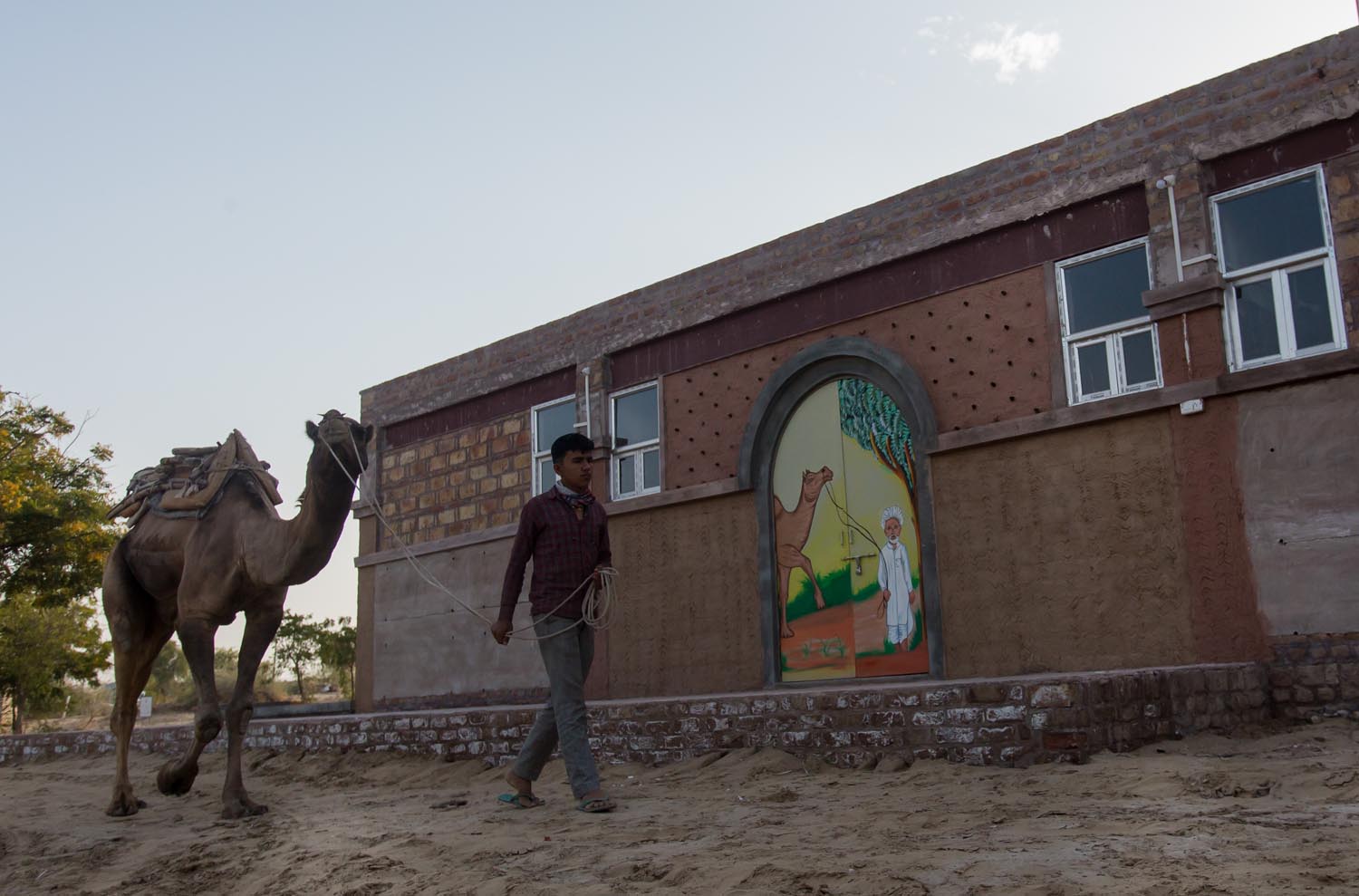
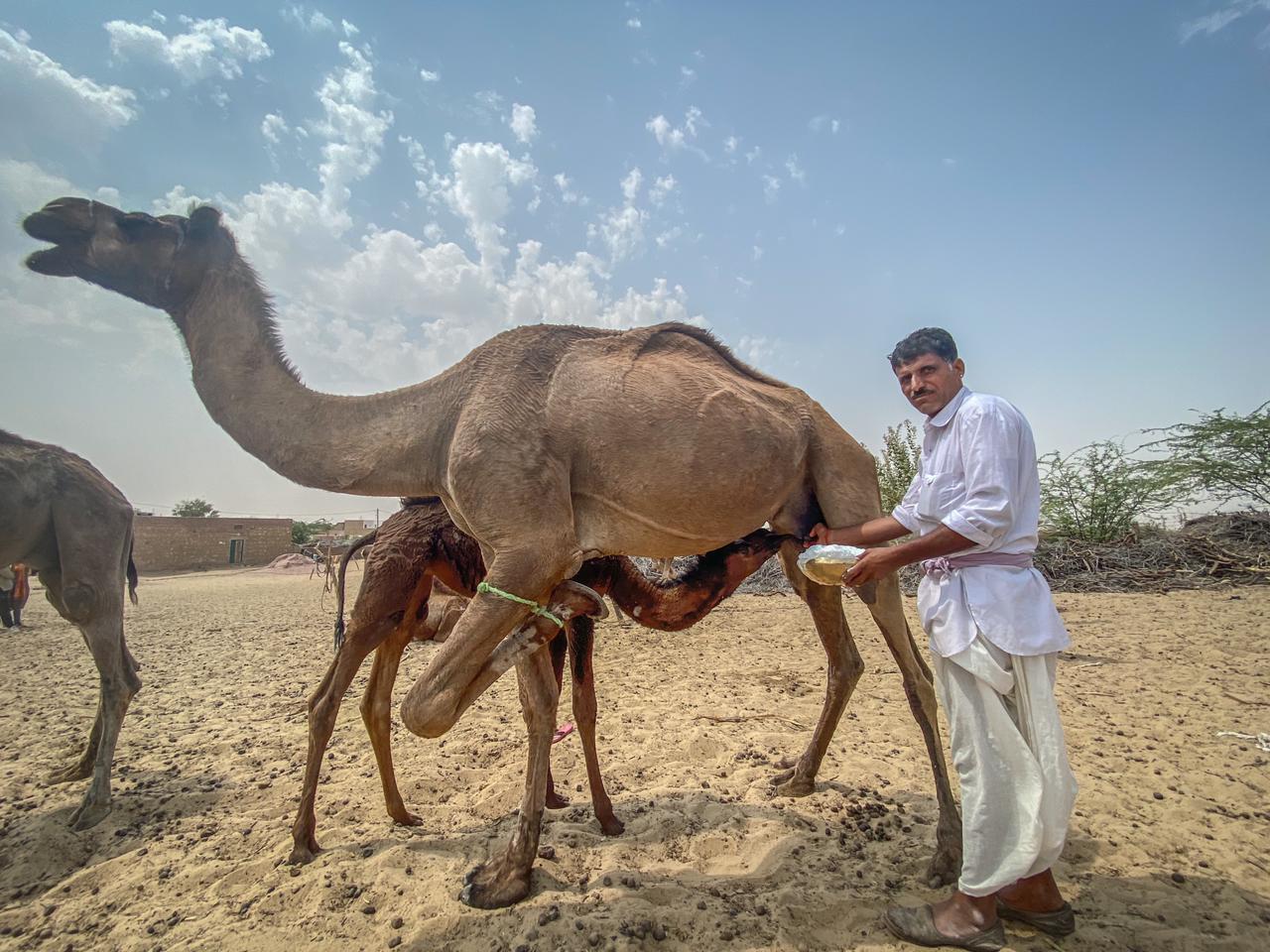
The Camel Partnership, however, is not about milk alone. We envision to increase the spread of this alliance to the cold deserts along with adding value chain experiments with camel dung, camel fibre handicrafts and eco-tourism and edutainment hubs.
There are many pastoral livestock product chains operating in the region and catering to local, national and international markets. However, most of these are operating in silos with high transport and marketing costs. With more pastoral products eventually finding an entry space in the market economy, there is a need to bring these small businesses under the same umbrella for greater outreach. DRC has a special interest and expertise in creating alliances and birthing innovative business partnerships. We believe in creating sustainability marks and developing and promoting customised ecosystem-based brands. For recognising the vibrant and valuable production hubs that deserts across the world are, we are connecting unrelated desert organisations to come together and have their pastoral craft, food and related products be sold and branded as ‘Made in Our Deserts’ products.

